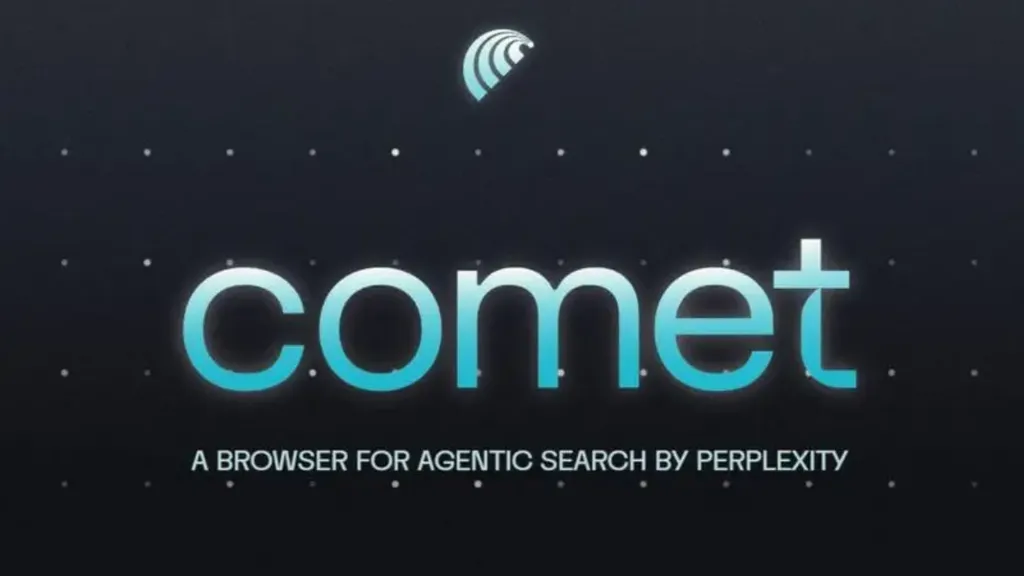
The Evolution of Search Technology
For decades, Google Search has stood as the undisputed king of web search engines, revolutionizing how we access information online. Its elegant simplicity, lightning-fast results, and ever-expanding index have made it an integral part of everyday digital life. However, as artificial intelligence (AI) continues to evolve at an unprecedented pace, new challengers are emerging that threaten to redefine the landscape of online searching. Could this rising tide of AI-driven tools be the equivalent of a “comet” streaking across the sky—dazzling, powerful, and perhaps disruptive to the established order? This article explores how Google Search is facing the AI-driven challenge and whether we are witnessing the dawn of a new era in search technology.
The Rise of AI in Search: A Paradigm Shift
The integration of AI into search engines is transforming the way users interact with digital content. Traditional keyword-based searches are now giving way to more intuitive, conversational, and contextual interactions thanks to advancements like natural language processing (NLP), machine learning, and intelligent assistants. Platforms such as ChatGPT and other large language models (LLMs) have demonstrated the ability to understand complex queries, generate human-like responses, and provide personalized information in real-time.
Key developments include:
- AI-powered web browsers capable of autonomous browsing, filling forms, and performing online shopping.
- New AI models like OpenAI’s ChatGPT, which now feature integrated visual and stylistic capabilities, making interactions more natural.
- Innovative tools like Perplexity’s Comet, an AI-powered browser that challenges traditional search paradigms.
How Google Search Faces the AI Challenge
While Google remains the dominant player in the search engine arena, it is acutely aware of the disruptive potential AI holds. Recognizing this, Google has been actively embedding AI into its ecosystem, exemplified by their development of tools like BERT, MUM, and the integration of conversational AI features. But the challenge lies in maintaining its core value—the speed, accuracy, and simplicity that users expect—while innovating amidst increasingly sophisticated AI competitors.
According to recent reports, Google Search is under pressure to adapt or risk becoming obsolete as AI models can generate direct answers, interpret queries in context, and even predict user intent with impressive accuracy. This evolution raises questions: Will traditional keyword searches become less relevant? Will users prefer more conversational, AI-driven interactions even for simple queries? How is Google leveraging its vast data ecosystem to stay ahead?
Strategies Employed by Google
- Enhancing Search Algorithms: Google’s AI algorithms are continuously refined to improve relevance and contextual understanding, offering more precise results tailored to individual user intents.
- Integrating AI Assistants: Google’s virtual assistants such as Google Assistant are becoming smarter, facilitating task automation, personalized recommendations, and voice-based searches.
- Investing in AI-Driven Features: Features like ‘Search Generative Experience’ aim to create more comprehensive and conversational results rather than just links.
- Strategic Partnerships and Acquisitions: Google is acquiring promising AI startups and investing heavily in new research to maintain its leadership.
The Comet Era: Disruption or Evolution?
The metaphor of a “Comet” elegantly captures the magnitude of the impending changes in search technology. Just as comets streak across the sky with dazzling brightness, AI-driven tools have the potential to revolutionize the way we seek and consume information—possibly faster and more profoundly than any prior technological shift.
Emerging AI browsers like Perplexity’s Comet and OpenAI’s Web Browser are designed to challenge Google Chrome, aiming to provide a more integrated, intelligent browsing experience. These tools can fetch, interpret, and synthesize information, providing answers rather than just links. For many users, this represents a more natural and efficient way of interaction—one that could diminish the traditional role of search engines.
Furthermore, innovations like Agentic browsers that plan trips, fill out forms, and even shop for users signify a shift toward autonomous AI agents that perform complex online tasks seamlessly, blurring the lines between search and digital assistant functionalities.
Implications for Users and Businesses
For Users
As AI-powered search tools become more prevalent, users will experience a more personalized and conversational interface. Traditional keyword searches may give way to natural language queries, voice commands, and even multi-modal interactions involving text, images, and videos. However, this also raises concerns about data privacy, accuracy of AI-generated answers, and potential biases embedded within these models.
For Businesses
Businesses must adapt their digital marketing strategies, understanding that ranking on the first page of traditional search results might become less critical if users rely on AI to generate summarized or direct answers. Optimizing content for AI understanding, ensuring relevance across conversational queries, and investing in AI-compatible content creation will become increasingly important.
The Future Outlook: A Collaborative or Competitive Landscape?
The evolution of AI in search does not necessarily spell the end of Google. Instead, it presents an opportunity for a competitive landscape where traditional search engines and AI-powered assistants coexist and complement each other. Google is actively exploring ways to integrate AI into its core offerings, emphasizing transparency, relevance, and user trust.
Meanwhile, newer players like Perplexity and OpenAI’s browser attempt to carve out niche innovations that challenge Google’s dominance, aiming for a more intelligent, context-aware online experience. The key question remains: Will this be a case of one “comet” or many stars illuminating the sky?
Conclusion
The AI era is undeniably transforming the landscape of online search. While Google Search currently maintains its dominance, the rapid development of AI-powered browsers, assistants, and innovative tools signals a disruptive phase akin to a blazing comet—brilliant, swift, and boundary-breaking.
Ultimately, the future of search will likely be nuanced, blending traditional methods with intelligent, conversational interfaces that empower users in unprecedented ways. Google’s agility in integrating AI and fostering innovation will determine whether it can navigate this “comet challenge” successfully or be overshadowed by newer, more adaptable technologies.
As we stand on the cusp of this new chapter, one thing is certain: the quest for information is entering a dynamic, exhilarating era—one where AI and human curiosity intersect more profoundly than ever before.
For more updated news please keep visiting Prime News World.








